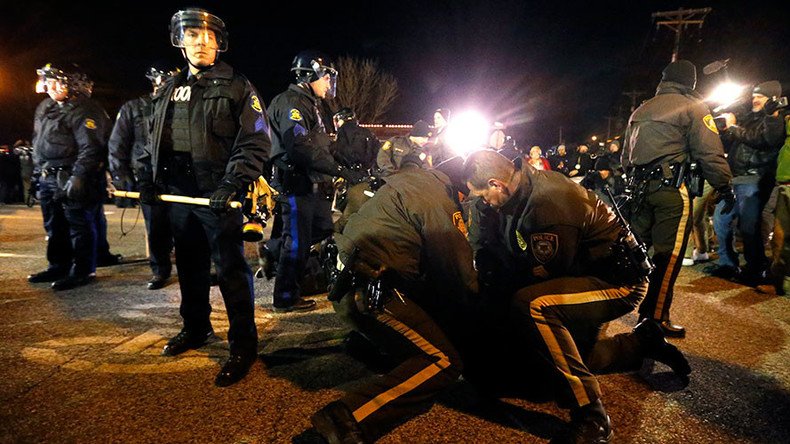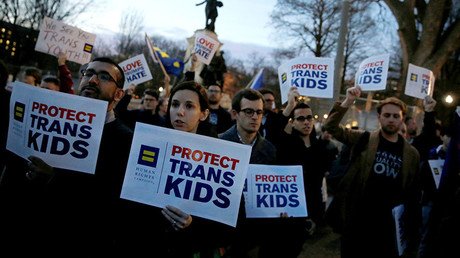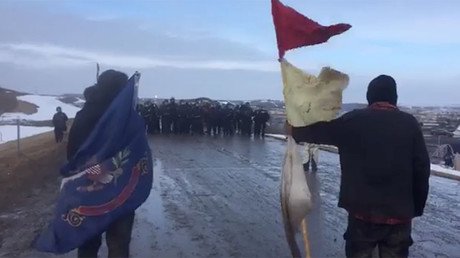UN rights experts have voiced concerns over bills recently introduced by a number of US states aimed at restricting the right to assembly, saying they are “undemocratic” and violate international human rights obligations adopted by Washington.
“Since January 2017, a number of undemocratic bills have been proposed in state legislatures with the purpose or effect of criminalizing peaceful protests,” the UN’s top experts on freedom of expression and freedom of assembly, David Kaye and Maina Kiai, said in a recent statement.
The proposed bills, if approved “would severely infringe upon the exercise of the rights to freedom of expression and freedom of peaceful assembly,” the statement says, noting that it would be “incompatible with US obligations under international human rights law and with First Amendment protections.”
“The trend also threatens to jeopardize one of the United States’ constitutional pillars: free speech.”
According to the UN experts, since the presidential election in November, US lawmakers in at least 19 states have introduced legislation “restricting assembly rights by various degrees.”
This comes as the US has seen an unprecedented surge in mass protest movements, from Black Lives Matter demonstrations to mass protests against Trump’s migration laws, environmental and Native American protests against the Dakota Access oil pipeline, and the Women’s Marches. The latter, for instance, was held across hundreds of cities and ended up as one of the largest demonstrations in US history, some estimates indicate.
“Individuals and organizations across society have mobilized in peaceful protests, as it is their right under international human rights law and US law. These state bills, with their criminalization of assemblies, enhanced penalties and general stigmatization of protesters, are designed to discourage the exercise of these fundamental rights,” the UN experts warned.
In their analysis, the UN experts pointed out a number of bills regarding “unlawful obstruction of traffic” by protesters, for instance in Florida and Tennessee, where it has been proposed to exempt drivers from persecution if they accidentally hit and kill people demonstrating in the road.
A similar Indiana Senate bill could allow law enforcement to “use any means necessary” to clear the roads of demonstrators, while at least eight other states propose bills that would “disproportionately criminalize protestors for obstructing traffic,” like the one in Missouri, which sets a prison term of up to seven years for obstruction of traffic.
Kaye and Kiai mentioned that many of these bills target opponents of the Dakota Access Pipeline construction in North Dakota and could have “a chilling effect on environmental protesters.” A little over a month ago, several dozen law enforcement officers in riot gear raided the protesters’ camp near the site and arrested a number of people who had been camping there for months.
The experts also criticized the use of the word “unlawful” regarding public assembly in the proposed legislation, as well as the term “violent,” which they deemed to be entirely inappropriate in the phrase “violent protest” – common for most of the bills.
“There can be no such thing in law as a violent protest. There are violent protesters, who should be dealt with individually and appropriately by law enforcement,” they said, noting that “one person’s decision to resort to violence does not strip other protesters of their right to freedom of peaceful assembly.”
“This right is not a collective right; it is held by each of us individually. Peaceful assembly is a fundamental right, not a privilege, and the government has no business imposing a general requirement that people get permission before exercising that right,” they explained.



